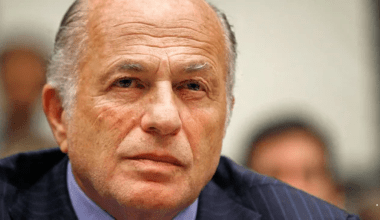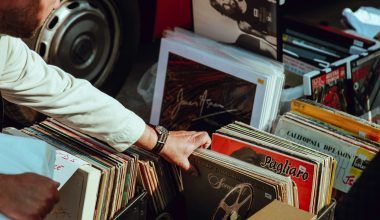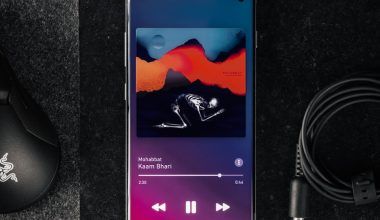Musical artists are the soul of the music industry. They create, innovate, and inspire, weaving emotions into melodies that touch millions. From classical composers to modern pop icons, musical artists hold the power to define eras and influence generations.
This blog will explore the multifaceted world of musical artists, delving into their journeys, creative processes, and contributions to the global music scene.
Who Are Musical Artists?
Musical artists are individuals or groups who create, perform, or produce music. Their work spans across genres, cultures, and styles, from vocalists and instrumentalists to DJs and producers.
Types of Musical Artists:
- Solo Artists: Singers or instrumentalists who perform individually.
- Bands: Groups like The Beatles or BTS that create music collaboratively.
- Composers: Those who write original music for orchestras, films, or stage productions.
- Producers: Behind-the-scenes creators who shape the sound and direction of songs.
The Role of Musical Artists in Society
Musical artists are more than entertainers. They are storytellers, activists, and cultural ambassadors. Their work often reflects societal issues, personal experiences, or universal emotions.
Contributions to Society:
- Cultural Preservation: Artists keep traditional music alive while innovating within genres.
- Social Commentary: Through lyrics, they address topics like love, politics, and identity.
- Inspiration: Their music motivates, consoles, and uplifts listeners.
The Evolution of Musical Artists
1. Classical Era
- Artists like Mozart and Beethoven focused on symphonies and operas.
- Music was primarily performed live in grand theaters.
2. 20th Century Revolution
- Jazz, rock, and blues introduced new styles.
- Legends like Elvis Presley and Bob Dylan changed the landscape of music.
3. Digital Age
- Streaming platforms like Spotify and YouTube made music accessible globally.
- Modern artists like Taylor Swift and Drake use social media to connect with fans.
The Creative Process of Musical Artists
Creating music is a blend of inspiration, skill, and hard work. Here’s a glimpse into their creative process:
1. Inspiration
- Artists often draw from personal experiences, emotions, or current events.
2. Composition
- Melodies, lyrics, and harmonies are crafted to express the intended mood.
3. Recording
- Advanced studios and digital tools help artists refine their sound.
4. Collaboration
- Many artists work with producers, lyricists, and instrumentalists.
5. Performance
- Live shows and tours allow artists to connect with their audience.
Popular Genres and Their Iconic Artists
1. Pop
- Notable Artists: Michael Jackson, Madonna, Ariana Grande.
- Characteristics: Catchy melodies, universal appeal, danceable rhythms.
2. Rock
- Notable Artists: The Rolling Stones, Nirvana, Foo Fighters.
- Characteristics: Strong guitar riffs, dynamic vocals, rebellious themes.
3. Hip-Hop
- Notable Artists: Tupac, Jay-Z, Kendrick Lamar.
- Characteristics: Rhythmic beats, storytelling lyrics, cultural commentary.
4. Classical
- Notable Artists: Bach, Chopin, Yo-Yo Ma.
- Characteristics: Orchestral compositions, complex structures, timeless appeal.
5. Electronic Dance Music (EDM)
- Notable Artists: Avicii, Calvin Harris, Martin Garrix.
- Characteristics: Synthesized beats, high energy, festival anthems.
Challenges Faced by Musical Artists
Being a musical artist is rewarding but comes with challenges:
1. Creative Pressure
Constantly producing fresh and innovative music can be stressful.
2. Financial Uncertainty
Many artists struggle financially, especially in the early stages of their careers.
3. Public Scrutiny
Fame often comes with loss of privacy and harsh criticism.
4. Evolving Industry
Keeping up with trends and technology is crucial but demanding.
How Technology Is Changing the Game
Technology has revolutionized the music industry:
1. Streaming Platforms
Artists can reach global audiences with platforms like Spotify and Apple Music.
Direct interaction with fans through Instagram, Twitter, and TikTok.
3. AI in Music Production
Tools like AI-generated beats and lyrics aid the creative process.
4. Virtual Concerts
Events on platforms like Fortnite and VR apps are redefining live performances.
Tips for Aspiring Musical Artists
If you dream of becoming a musical artist, here are some tips:
- Find Your Unique Voice: Develop a style that sets you apart.
- Practice Consistently: Dedicate time to mastering your craft.
- Network: Collaborate with other artists and industry professionals.
- Leverage Technology: Use digital tools to create and promote your music.
- Stay Resilient: Success often requires patience and persistence.
The Global Influence of Musical Artists
Musical artists have a profound impact on global culture:
- Bridging Cultures: Music transcends language and geographical barriers.
- Shaping Trends: From fashion to social movements, artists influence various aspects of society.
- Uniting Communities: Concerts and festivals bring people together.
Conclusion: Celebrating Musical Artists
Musical artists are more than performers; they are visionaries who shape culture and inspire emotions. From the pioneers of classical music to modern-day pop icons, their contributions are invaluable.
Whether you’re an aspiring artist or an ardent fan, the world of musical artists offers endless inspiration and creativity.
For further reading, explore these related articles:
For additional resources on music marketing and distribution, visit Deliver My Tune.






